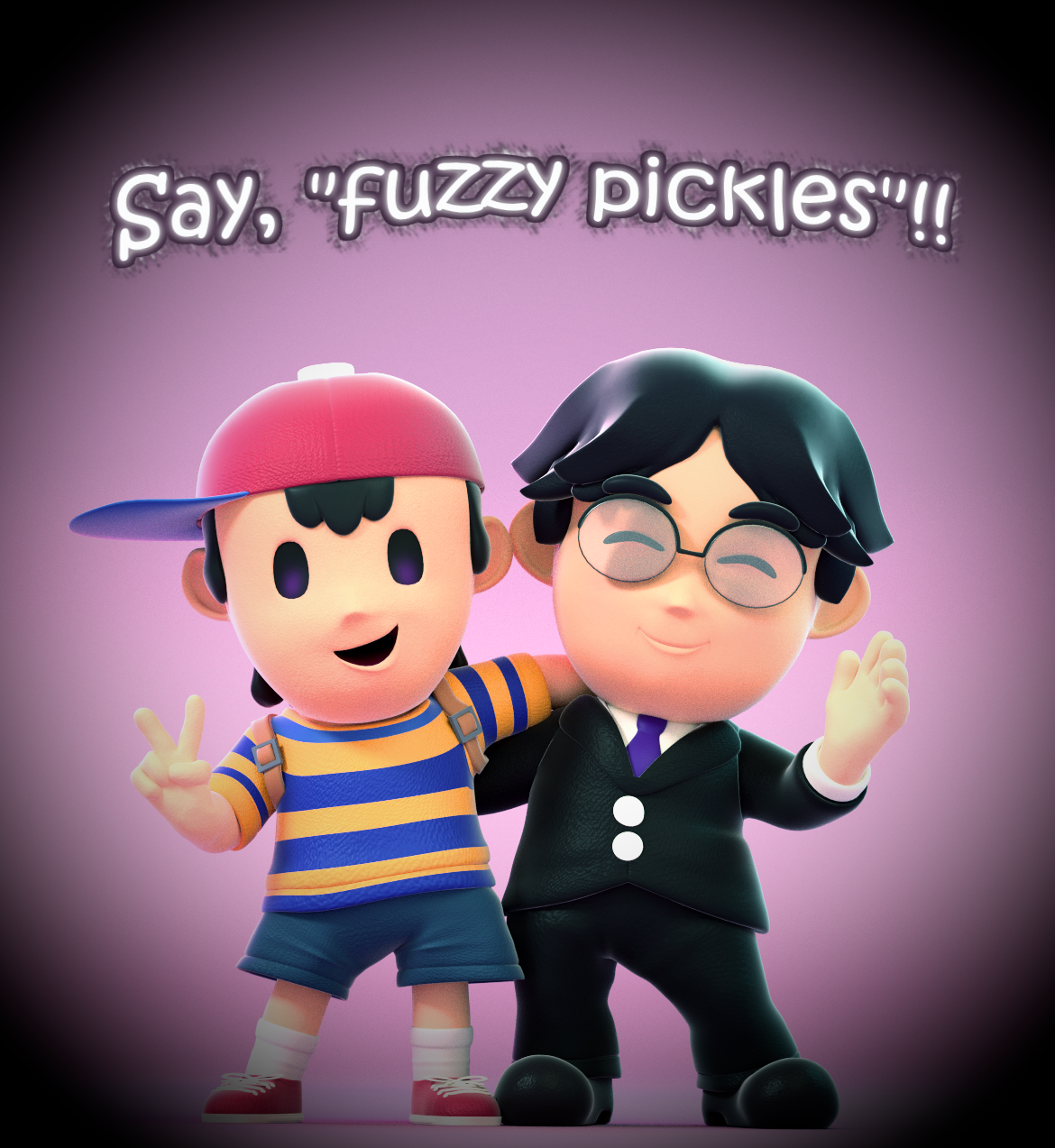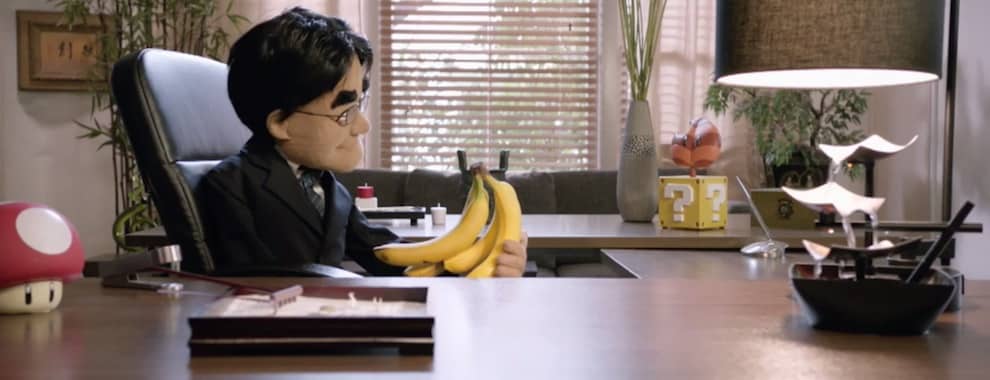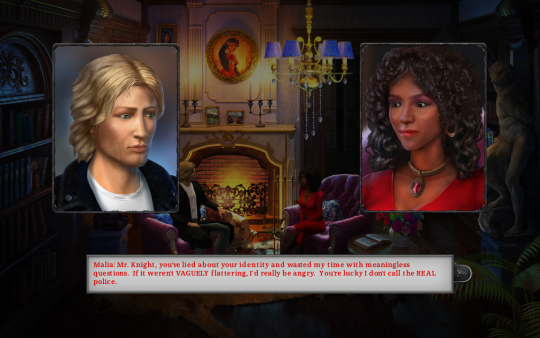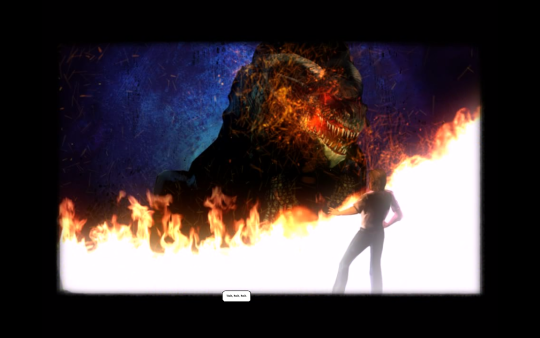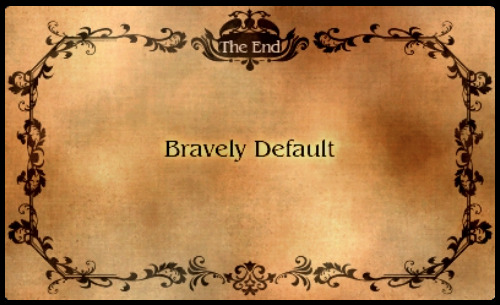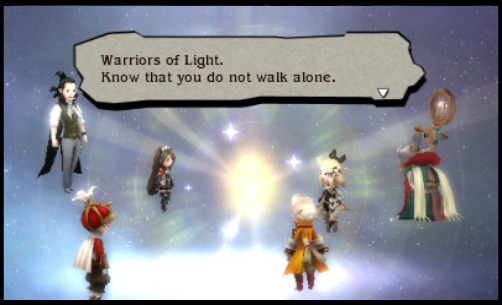[Warning due to the very nature of this piece there will be spoilers galore. If you have not finished Bravely Default and want to experience the ending of the game for yourself without anything spoiled, then come back later after you have completed the game]
Last year Bravely Default: Where the Fairy Flies came out with a loud crescendo. It was rewarded accolades abound, and was the talk of the town. Naturally considering it was such a big launch and that we live in the 21st century with compulsive social media and other entertainment news outlets not getting spoiled would be hard if you didn’t play the game right away. So of course … I wasn’t playing it right away.
Don’t get me wrong, this was not for a lack of interest in the game, in fact, I pre-ordered the big limited edition set months before the release date, so I had the game right from the get-go; I was just, for a lack of a better word, busy. The inevitable pretty much happened and more or less as the months trickled on the entire game became spoiled for me against my will, but not even in a way I could have predicated. The talks of accolades soon turned into talks of bitter disappointment, and before I knew it I had heard probably a million times over about how badly the game ended and how it was grossly misjudged and even overrated.
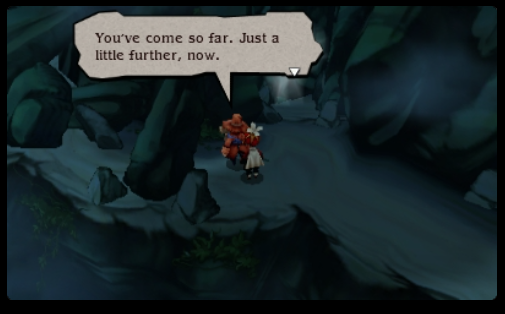
Maybe I was saved a bullet having learned what the ending was already and seeing that most people hated it. A reasonable man would have probably stopped there, however, I am not reasonable, so I ignored it and still played the game like the psycho that I am. It was honestly a remarkably fun experience, though, that hit all my not so guilty pleasures when it comes to RPGs. From the second the first AR video played where Angès addressed you, yes you—the player, I was sold. I always loved games that find ways to incorporate the fact that the player is there as an active participant and not just a passive watcher. It is a very unique story telling element that I truly believe only games can pull off successfully (more on this shortly).
From there I found four great chapters that were both engrossing and long. I grew to love Bravely Default a lot and that’s what began to worry me. Deep down I knew that when Chapter 4 finally comes to an end, I would see with my own eyes what everyone hated. I was nervous, cautious, and even a bit scared that what would come next would ruin the previous 57 hours of fun I had with the game. When Chapter 5 finally did come, I found myself humorously writing on Twitter about it. You could say I willingly tried to just make the best of it and lowered my expectations.
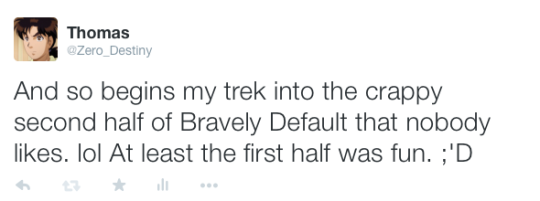
You may be asking yourself now, what exactly happens in Chapters 5-8 that people hate so much? Well near the end of Chapter 4 you have successfully defeated the Empire and cleared out the majority of the bosses in the game, as well as awakened all four Crystals and traveled pretty much everywhere on the world map. Normally the game would have been finished and the credits would roll, but yet, they don’t. Instead you find yourself in a bright light only to be awoken in your bed on the very first day of the game—essentially looping the whole game back to the very beginning. Without much idea on what else to do you and your party decide to just reawaken the four Crystals again, and can choose to fight optional souped up versions of all the Empire’s previous bosses again, as well. It does not stop there, though, as it happens a total of five times—with each loop bringing you closer to the end, but still being essentially the same game over and over and over again.
It’s natural to think this won’t sit well with some people since it creates so much busywork, but the game does accommodate you by allowing you to keep your airship from the very beginning of each loop, making travel real short. In fact most loops could probably be finished in 30 or so minutes if you rush through and ignore fighting all the optional super bosses again and again, which honestly is what I did. All in all, for being the final 4 “chapters” of the game, Chapters 5-8 are really very short, and depending on how much of a glutton you are for punishment (i.e. how much you want to fight the same bosses over and over and over again) the length can vary. If you were like me though, these chapters probably only take up 1/8 of the game’s actual length. They really are over in probably less than 3 or 4 hours.

So did this ruin Bravely Default for me? Well … when I began Chapter 5 I was very cautious and a bit dismissive initially. I found a little voice nagging in my head that if they really wanted to loop this game so darn much that they should have saved us the time and just implement a montage. The voice eventually subsided in my head, though as I went farther, and after a while the ending of the game began to click for me. As the ending progressed I realized more and more what the writer, Naotaka Hayashi (most well known for his previous work on the visual novel Steins;Gate) and Silicon Studio wanted to do, and how closely it tied the player themselves into the game.
The looping process gradually reveals to you—the player, that Airy, your guide throughout the game, was only using the heroes to complete her own ends, and that awakening the Crystals in fact doomed your world. As you looped over and over again you were traveling to parallel worlds and linking them to the previous world, and by doing so dooming these worlds as well. Each new parallel world gave the player, slight insight into this fact. They start gradually, but grow more and more obvious as the looping process goes on. Eventually when you reach Chapter 6, the game goes all out and even gets cheeky with you, as the title screen changes. The subtitles now show in both red and white; WHERE THE FAIRY FLIES, and then slowly the red letters fade away, thus making the subtitle another hint: Airy Lies.

This entire process, the looping with more and more gradual hints, the cheeky title change, and the characters stupidly repeating the same action while us, the players, bemoan them for it; they all represent a literary device known as dramatic irony. Dramatic irony is probably most well known in the English speaking world for the Shakespeare play Romeo & Juliet, in which, the audience knowns that the characters Romeo and Juliet only pretend to be die, but under the false pretense of actually believing the other dead, kill themselves for real. It’s a tragedy that could have easily been avoided had the fictional characters known the information that the audience did.
Carefully crafting a new take on the literally device of dramatic irony is what I believe Hayashi and his team were trying to accomplish with Bravely Default’s ending. Instead of just settling for simply crafting this device through traditional means however, I believe they tried to craft it through the actual gameplay itself. The disconnect between the player and the game that you feel at the ending through all the looping of events becomes a unique experience that challenges the player to want to communicate to the characters; to want to tell them to stop looping, to want to tell them to not trust Airy, to want to reach out to them. It creates the desire, nay, the need, to communicate between the audience and the game, which is what happens to audiences when dramatic irony is effetely being used. I believe this use of literally device is an important part in the experiment that was Bravely Default's creation. To elaborate we will need to move beyond the looping and look into the events that happen in the Final Chapter. To better explain this I need to make a small detour first though, so hold on, I promise it will pay off.

Typically, most games have elements that make no sense by our real world logic, but we are willing to ignore, since, these elements help shape the gameplay. It’s usually something simple, like why Mario can only run right or left in his 2D platforming games, when we all know there’s a bevy of other directions Mario can go. Or better yet, when side characters tell the main characters to “hit the A button” even though we know, in this story world there are no A buttons, and this information is only there to facilitate the player. These elements that by a story stand point don’t make sense, but by a game stand point do, actually become explained towards the end of Bravely Default with the reveal that each cartridge (and digital copy) of the game is actually another parallel world, and that each time someone plays the game, they are just another of the billions of parallel versions of the heroes going through parallel journeys. Why can you use the 3DS’ friend system to summon your friends to help with combos in battles? How can your streetpass function bring new villagers to your virtual town? All explained. It’s the interaction of parallel worlds, and saving all these parallel worlds, all the other copies of the Bravely Default games, is your final quest during the end of the game.
Through the disconnect created with the looping i.e. dramatic irony, and tying together all the gameplay elements into actual story elements, Hayashi and his team were able to do something truly unique with their ending. It's an experience that connected us, the players, to the Warriors of Light. It was a connection of different worlds, both in the fact that all the Bravely worlds are connected, and the fact that, our world too, is connected with those Bravely worlds. When the game is finished, and the player is no longer needed, we become disconnected, as it is revealed that our force, our use of playing the game on our 3DS, is what kept Tiz alive from his obvious doom that he would have faced at the beginning of the game like his entire town did. With the player finally putting down the game, Tiz passes on, and finally dies. No longer having the other soul--us players--to help control his body.
Having finally finished Bravely Default, I feel the ending may have been a bit misjudged. Or at the very least, that people might have taken to it more harshly than they should have. The ending of Bravely Default is an interesting experiment on how video games can tell unique stories—stories that can’t be told in any other medium. However, I don’t think that gives it a free pass either, as this unique style of telling the ending is pretty demanding of its player, and equal parts repetitive to boot. The frustration brought from, and desire to just speed through chapters 5-8 are duly noted, and are perfectly acceptable complaints as well. It’s also a shame that after 40-50 hours invested in the game, you are suddenly forced to now invest in this demanding ending that is a dramatic shift from what the game was like previous, and on a technical level can be seen as padding with recycled resources. Losing interest or starting to hate the game is something I can’t blame anyone for, honestly.
This ending … is not for everyone. There are many flaws and shortcomings to what Hayashi and the team did for the ending, but all the same, I found it fascinating. I’m not sure what may be in store for Bravely Second and beyond (if the series can go on to a third entry that is), but the ground floor that Hayashi set with the first entry for the series is something strange and kinda magical. It’s a game that’s one part a nostalgia trip for old Final Fantasy fanboys, and one part experimental video game story telling.

